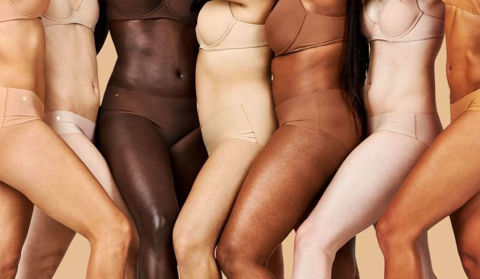
When our parents were children, they also enjoyed drawing people during class time and even at home. When it came time to color the people they drew, what color do you think they reached for in the box of crayons? Back then, there was a “skin color” crayon that was basically beige. As Black or Brown children, they used these crayons without giving it a second thought, coloring in people that did not represent exactly who they were. What happens when they grow up conditioned to associate “Nude” or “Flesh” with one particular shade color? The answer, of course, is that they unwillingly became complicit in supporting racial hierarchies that normalize one color and alienate others. Decades later, we are experiencing the same issue in various spaces such as the fashion and makeup industries which normalize a beauty standard that excludes a majority of people.

Assuming that “Nude” or “Flesh” are synonymous with the colors beige or tan excludes people of darker hues. The problem gets worse when such assumptions are carried out into institutions like the fashion and cosmetic industries. You start seeing makeup companies promoting a “flesh color” foundation that only represents the white community. If light colors like beige are supposed to represent the human flesh, then what would that make a Black woman’s skin? Unnatural? Not worthy of being nude? Likewise, fashion companies release light-colored monochrome clothing lines that are advertised as nude colors, which again, presumes that lighter skin tones are the true nude color.
This racist problem even showed up in the Merriam-Webster Dictionary, where the word NUDE was defined as “having the color of a white person’s skin.” Crazy, huh! Even a dictionary assumed that the default skin color was white, making it the “right” skin color while ignoring that an entirely wide range of other human skin colors exist. They kept that definition until a sophomore student from Ithaca College, named Luis, launched a campaign calling Merriam-Webster to change their racist definition. Merriam-Webster finally changed it in August of 2015.

Naked Black skin is beautiful. Darker Brown skin is beautiful. Language is a powerful thing and when words are designed to fit a certain group of people while excluding others, it can cause great institutional harm. The default human color is the one that you were born with and nude is a state of being that includes everyone.
